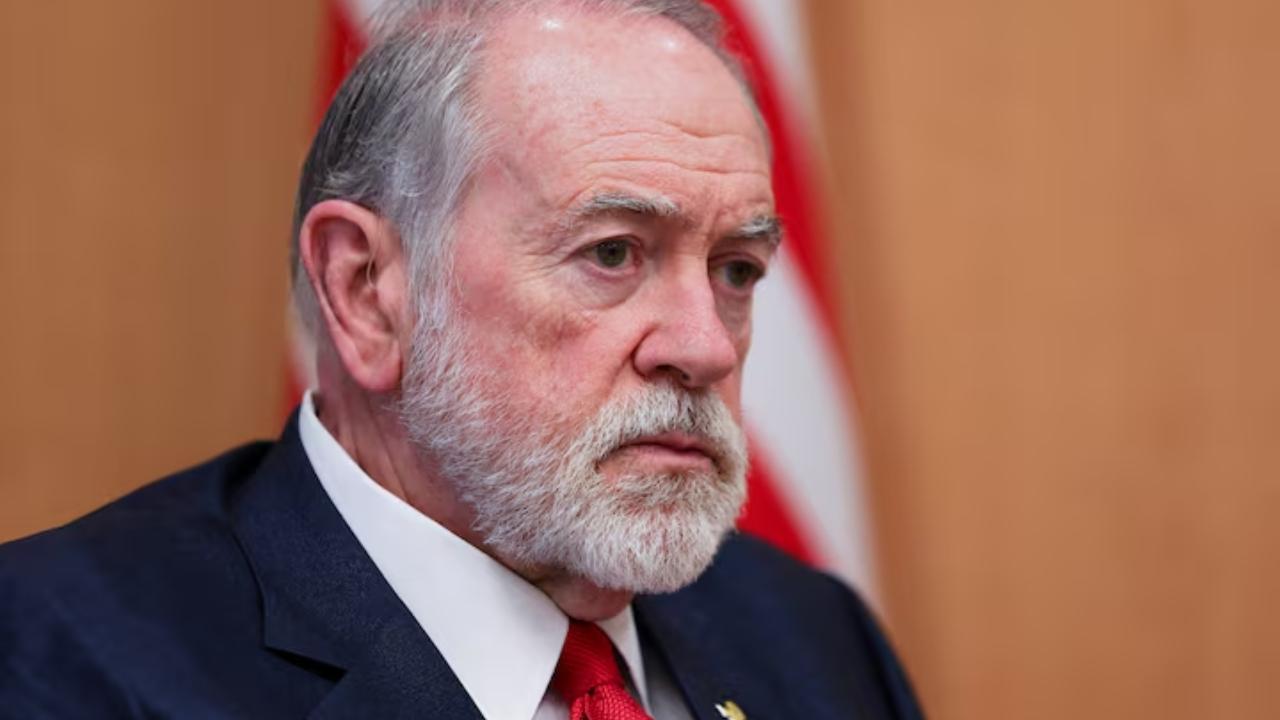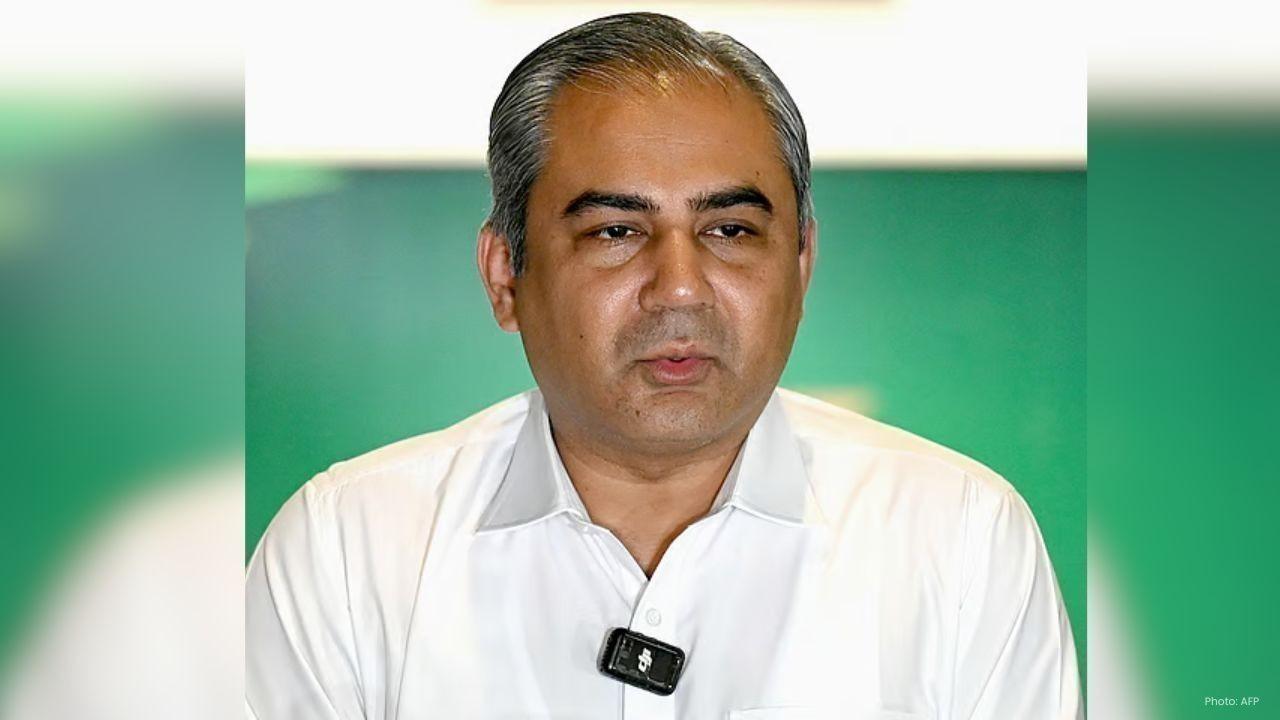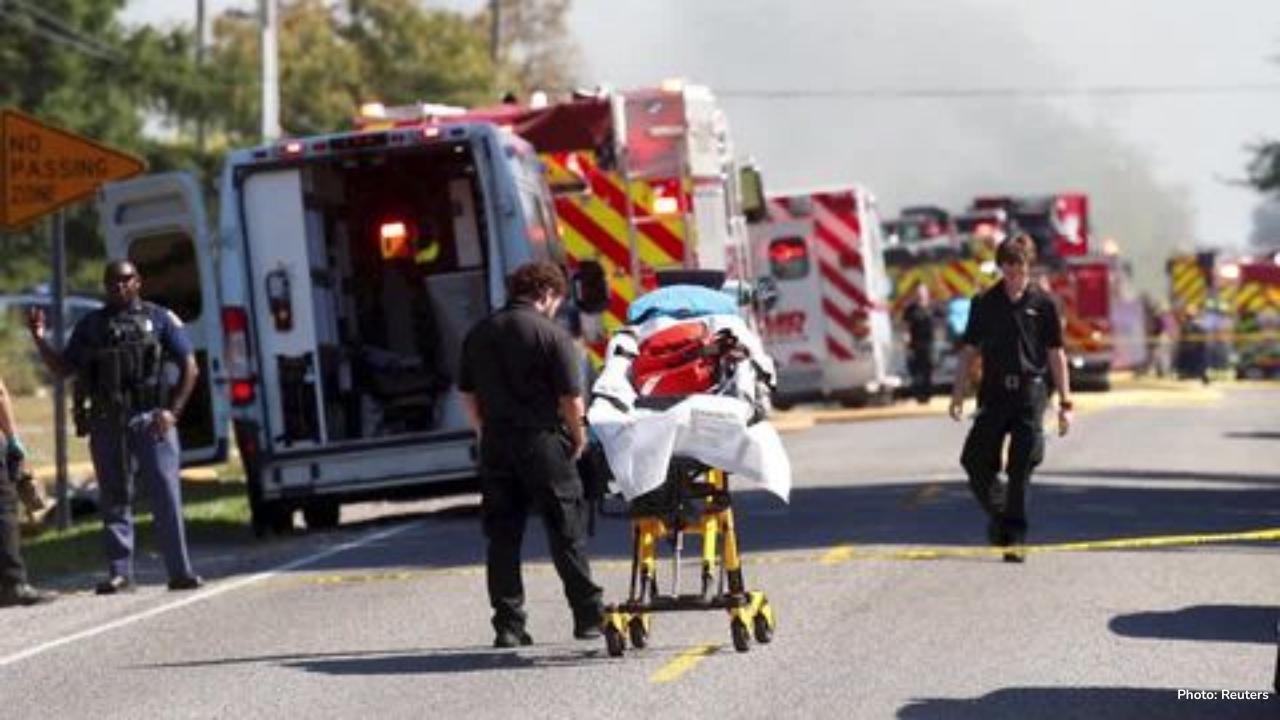
Post by : Monika
Photo: Reuters
On September 19, 2025, U.S. Ambassador to Israel, Mike Huckabee, revealed that the United States has begun preliminary discussions with Gulf Arab countries regarding the governance of Gaza after the ongoing conflict.
These talks are focused on exploring possible options for an interim administration in Gaza, with Gulf states potentially playing a role and the United States providing oversight.
The discussions come amid a continuing conflict in Gaza, which has caused massive destruction, civilian casualties, and a growing humanitarian crisis. While the U.S. emphasizes that no formal agreements have been reached, these early talks reflect a growing international interest in stabilizing Gaza once hostilities end.
Background of the Gaza Conflict
The conflict in Gaza escalated in October 2023 when Hamas launched attacks against Israel. Israel responded with military operations targeting Gaza City and other areas. Over the past two years, the violence has resulted in over 64,000 Palestinian deaths and the displacement of roughly 350,000 people.
Gaza, a densely populated area along the Mediterranean, has faced widespread destruction of homes, schools, hospitals, and infrastructure. Continuous airstrikes and ground operations have created a humanitarian emergency, leaving thousands without shelter, food, or medical aid.
The international community, including the United Nations, has repeatedly called for a ceasefire, urging all parties to protect civilians and allow humanitarian assistance. Despite these calls, fighting continues, making discussions about Gaza’s future governance increasingly urgent.
U.S. Involvement
Ambassador Huckabee clarified that these discussions are preliminary. “It’s a discussion. It’s not something that has been accepted by the administration, by Israel, or by anyone,” he said. The United States is considering various options for post-war Gaza administration but has not finalized any concrete plans.
Earlier reports in January 2025 indicated that the United Arab Emirates (UAE) had spoken with the U.S. and Israel about participating in an interim administration for Gaza. The proposed plan could involve the Palestinian Authority (PA) as part of a governance framework. However, Israeli Prime Minister Benjamin Netanyahu has opposed any direct involvement of the PA, citing security and political concerns.
The U.S. is working to balance the need for stability in Gaza with Israel’s security concerns, while also ensuring that Gulf Arab countries can play a constructive role in the rebuilding and governance process.
International Perspectives
There is a broad international consensus that Hamas, the militant group controlling Gaza since 2007, cannot remain in power due to its history of terrorism and involvement in violent attacks. However, there is no agreement on who should govern Gaza after the conflict.
The Palestinian Authority has expressed willingness to take responsibility for Gaza, but only under certain conditions, including the disarmament of Hamas and progress toward the establishment of a Palestinian state. Gulf states, such as the UAE, have also indicated that they would consider participating in post-war governance if these conditions are met.
Israel, however, remains hesitant. Officials argue that the involvement of the PA could create security risks, particularly if Hamas or other militant groups continue to operate underground. Israel also emphasizes that any post-war governance plan must be consistent with broader peace and security objectives in the region.
U.S. Conditions
The United States has made clear that it will not support any governance plan if the Palestinian Authority continues to provide financial support to families of individuals involved in terrorism. This policy is part of a broader U.S. strategy to promote peace and stability, while discouraging terrorism and militant activity.
Former British Prime Minister Tony Blair has reportedly been working on a post-war plan for Gaza. This plan could involve international oversight and support for reconstruction efforts. While the details are not yet public, the plan may align with the U.S. vision of a stable interim administration supported by Gulf states, the PA, and international partners.
Humanitarian Situation in Gaza
The humanitarian crisis in Gaza remains severe. Continuous Israeli military operations have caused widespread casualties, displacement, and shortages of food, clean water, and medical supplies. Hospitals and clinics are overwhelmed, and humanitarian agencies face challenges delivering aid due to security concerns.
The U.N. has repeatedly called for the creation of a temporary international stabilization mission to assist civilians and provide essential services. Despite these calls, the conflict continues, leaving tens of thousands of people without shelter and basic necessities.
Additionally, there are reports that about 20 hostages remain alive in Gaza following the October 2023 Hamas attacks. Efforts to negotiate their release have been complicated by the ongoing fighting and the lack of a clear political framework for governance.
Challenges in Post-War Governance
Establishing an interim administration in Gaza faces several major challenges:
Disarmament of Hamas: Any plan must address the issue of Hamas’ weapons and influence. The group controls significant parts of Gaza, and disarming it fully may be difficult.
Role of Gulf States
Gulf Arab countries, particularly the UAE, are being considered as key partners in Gaza’s post-war governance. They could provide financial support, technical assistance, and administrative oversight, helping to rebuild infrastructure and restore basic services.
The Gulf states’ participation could also signal regional support for stability in Gaza and reduce the risk of future conflicts. However, their involvement must be carefully coordinated with the PA, Israel, and international organizations to ensure effectiveness and legitimacy.
Role of the United States
The United States hopes that its involvement will help create a stable, temporary administration that can serve as a foundation for long-term peace and governance in Gaza.
International Reactions
The international community has expressed cautious support for discussions on post-war Gaza governance. While many countries agree that Hamas cannot remain in power, there are differences regarding the role of the PA, Gulf states, and international actors.
The Human Impact
For civilians in Gaza, discussions about governance are deeply personal. Families continue to live amid destruction, fear, and uncertainty. Many have lost homes, loved ones, and livelihoods.
Looking Ahead
The United States and Gulf states plan to continue discussions over the coming months. The ultimate goal is to establish a temporary administration that can stabilize Gaza while ensuring Israel’s security and meeting humanitarian needs.
Observers note that these discussions are delicate, as they involve multiple stakeholders with different priorities. The PA, Gulf states, Israel, and the U.S. must find common ground while balancing political, security, and humanitarian concerns.
Although the conflict in Gaza is ongoing, these early talks provide a glimpse of international efforts to prepare for post-war governance. They highlight the importance of diplomacy, regional cooperation, and international oversight in achieving a stable future for Gaza.
The preliminary discussions between the United States and Gulf Arab states about post-war Gaza governance reflect growing international concern over the humanitarian and political crisis in the region.
While no formal agreements have been made, these talks signal a desire to create a stable interim administration involving Gulf states, possibly the Palestinian Authority, and international oversight.
The challenges are significant, including disarming Hamas, ensuring security, coordinating multiple stakeholders, and addressing urgent humanitarian needs. Despite these obstacles, the efforts underscore the importance of diplomacy, regional cooperation, and international engagement in shaping a post-conflict Gaza that is safe, stable, and capable of rebuilding.
United States Gaza Post-war administration










Sinner & Swiatek Shine at China Open: Semifinal Spots Secured
Jannik Sinner and Iga Swiatek advance to the semifinals at the China Open. Read about their victori

Michigan church attack kills 4, injures 8 in shocking violence
A gunman drove into a Michigan church, fired shots, set fire, killing 4 and injuring 8 before police

Moldova’s Pro-EU Party Secures Majority in Key Vote
Moldova’s pro-European PAS wins a strong majority in the parliamentary election, weakening pro-Russi

Gabriel’s late header gives Arsenal 2-1 win at Newcastle
Arsenal snatch dramatic 2-1 win at Newcastle as Gabriel heads the winner in stoppage time; Merino eq

Air France Flight 447 Trial Opens 16 Years After Tragic Crash
Sixteen years after the Air France Flight 447 crash, a trial opens against Air France and Airbus. Le

Europe close to Ryder Cup win after strong weekend play
Team Europe is on the verge of winning the Ryder Cup, showing great form in Italy and needing only a